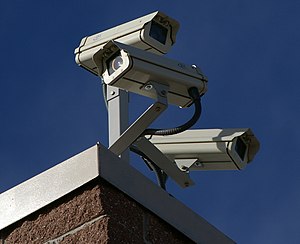Interview With Ira Somerson

- Image via Wikipedia
Home security systems can be useful anti-theft devices, but they have more important uses – like protecting your family’s safety.
“People don’t want to face the reality that alarms are about personal protection,” said Ira Somerson, a leading expert witness and consultant in the field of security systems.
Somerson went on to explain that a family’s biggest worry isn’t someone breaking in to steal a TV and the good silver to sell for drug money. Paying for your monthly alarm monitoring at $25 a month or ongoing isn’t necessarily paying off to protect $500 or so worth of property. However, it can be well worth the cost of personal safety.
“The first thing you need ask yourself before getting an alarm system is ‘Why am I buying it?’ Do you want it to protect your children when they’re with the babysitter? That makes the system altogether different.”
Somerson says that some well placed triggers at windows and doors may be fine for protecting against theft, but they’re not sufficient for personal protection.
“People want to believe the smaller system can do the job,” Somerson said “I think the average consumer doesn’t know what they have to invest.”
In fact, consumers have to be committed to getting sufficient security because in many cases, home security system companies aren’t necessarily promoting what’s in their best interest.
Contrary to what may seem common sense, security system sales people and sometimes their companies don’t usually upsell too much. Instead, they want to offer you a system at a price you can’t refuse. Why? Their commissions come from the ongoing monthly revenues generated by the monitoring services – not the sale or installation of the security system itself.
While a smaller system may be adequate to theft issues, it may not add much to your family’s safety.
“With low-end products, you get what you pay for,” Somerson explained. “When it comes to false alarms, a lot of systems are not well-designed to prevent them.”
Somerson estimates that 90 percent of alarms are actually false. Better quality security systems and better system design can help you avoid false alarms which bother neighbors, security monitoring companies and can actually get you in trouble with your local law enforcement.
What you don’t need, according to Somerson, are security cameras.
“Ever think about looking out the window? I don’t see the value.”
In fact, video surveillance cameras can actually cause your security system monitoring company to delay dispatching help because they end up reviewing the videos before they take action. On systems without cameras, security companies call your home – and if you don’t answer and give your security password, they begin taking action on the event.
What are the most effective features of a home security system? Somerson says that safety features such as smoke, carbon monoxide, flood and temperature shift detection devices are effective products that produce real value.
“That’s the first thing you should buy.”
Similarly, he feels personal medical alarms and protection devices are intelligent products that can protect family members. Many systems offer wireless pendants and keychains that elderly family members or those with known medical conditions can use to get immediate help if they fall or have an emergency. Somerson said that alarm companies usually dispatch help swiftly and efficiently with these alarms.
For people serious about getting the right security system, Somerson recommends contacting a professional security consultant certified by the International Association of Professional Security Consultants. They can’t sell anything but their advice and are bound by a code of ethics not to promote or work with any one security system or company.
Ira Somerson is president of Loss Management Consultants which can be found online at http://www.securityoffice.com.